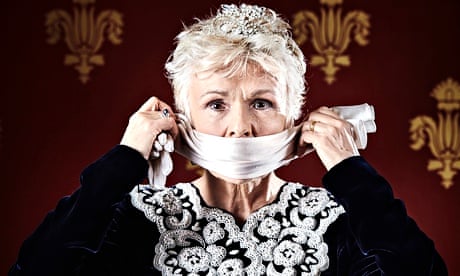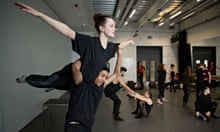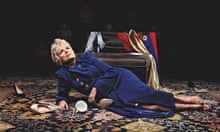Julie Walters has added her voice to the growing row about whether there is a lack of working-class voices in contemporary drama, saying that if she was starting out now she most likely would not have the chance to make it as an actor.
The comments from Walters come in an interview with the Guardian on Saturday, and echo those of the shadow arts minister, Chris Bryant, who said last week that those from privileged backgrounds, such as Eddie Redmayne and James Blunt, were over-represented at the top of their professions.
Bryant’s words prompted a furious response from Blunt, with the singer calling the Labour MP a “classist gimp”.
In the interview, Walters, who turns 65 next month, says: “People like me wouldn’t have been able to go to college today. I could because I got a full grant. I don’t know how you get into it now. Kids write to me all the time and I think: I don’t know what to tell you.”
It is, she argues, a problem not just for would-be actors, but also writers: “Working-class kids aren’t represented. Working-class life is not referred to. It’s really sad. I think it means we’re going to get loads more middle-class drama. It will be middle-class people playing working-class people, like it used to be.”
Walters, who grew up in Staffordshire with a father who was a builder and decorator and a mother who was a clerical assistant, says she will vote Labour in the general election, but with reservations.
Asked for her dream manifesto she mentions better access to drama: “I’d create proper grants for all working-class kids so they could go to drama school.”
Walters studied English and drama at Manchester Polytechnic after three years as a nurse, and started her career at Liverpool’s Everyman theatre, working with working-class writers such as Alan Bleasdale and Willy Russell.
She describes herself as spending years being what her Educating Rita co-star Michael Caine called “angry at the world”. She said: “I know! I think he’s probably right, old Michael, to have picked that up. Yes! Probably still youthful anger at deep stuff, like your mum not approving of you, not being good enough, that sort of anger. Then you can channel that into your politics.”
She describes even seeing the politics in one of her most recent roles, as the housekeeper Mrs Bird in the children’s film Paddington: “It gives out a really positive message about inclusion and tolerance. He’s a refugee, basically.”








Comments (…)
Sign in or create your Guardian account to join the discussion